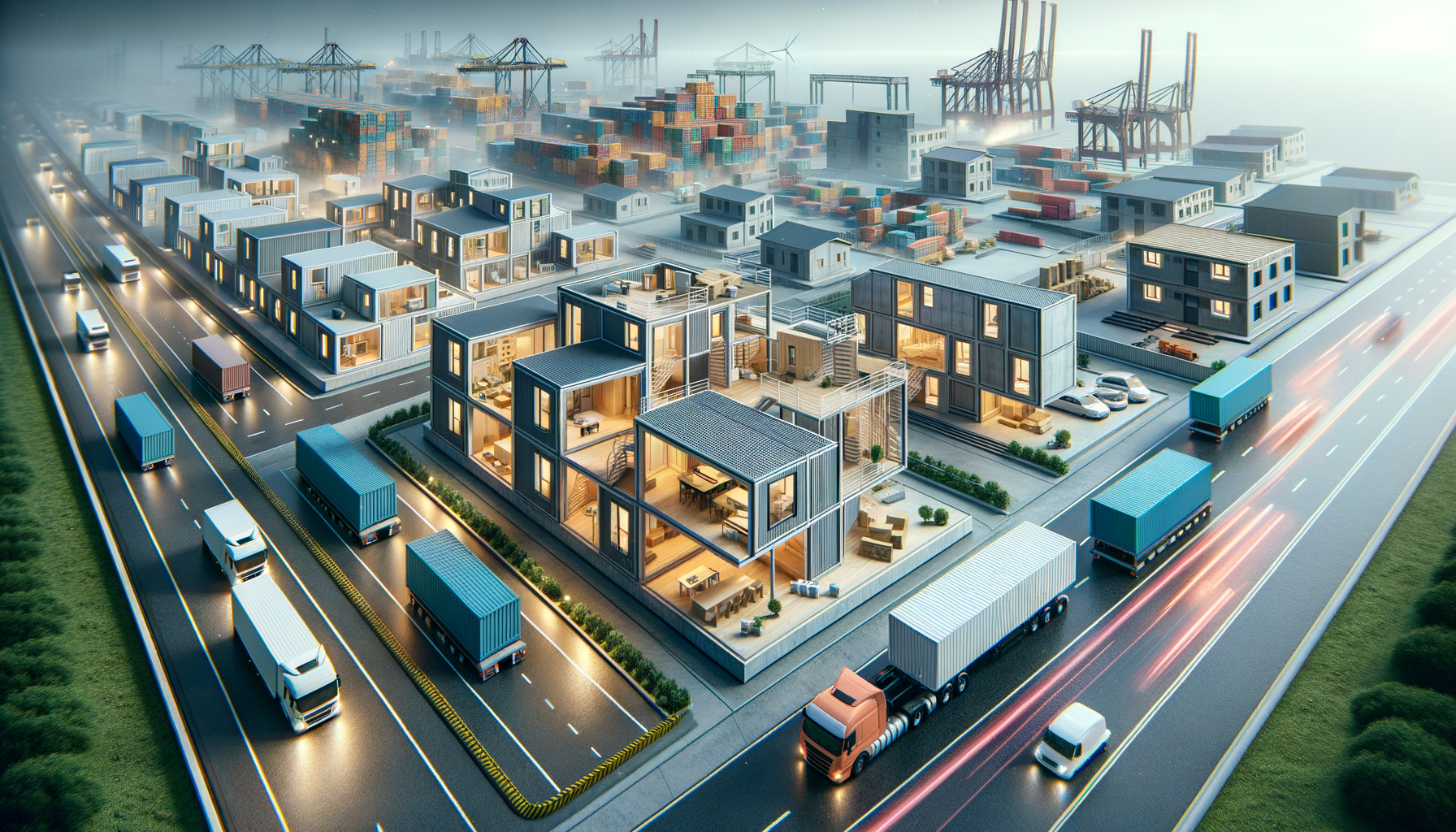
Navigating the Realm of Flexible Home Construction: Modular Homes
Understanding the Concept of Modular Homes
Modular homes, often referred to as prefabricated homes, are constructed in sections or modules in a factory setting before being transported to their final location for assembly. This method of construction offers a unique blend of efficiency and flexibility that traditional home building methods may lack. The modules are built indoors, which means they are not subject to weather-related delays, a common issue in conventional construction. This controlled environment also allows for consistent quality control and inspection processes, ensuring that each module meets specific standards before leaving the factory.
One of the key advantages of modular homes is their adaptability. Homeowners can choose from a variety of designs and layouts, customizing their homes to fit specific needs and preferences. This flexibility extends to the interior finishes and fixtures, allowing for a personalized touch that reflects individual tastes. The modular construction process is also environmentally friendly, as it reduces waste and often incorporates sustainable building materials.
In summary, modular homes offer a modern approach to home construction that combines efficiency, quality, and customization. They present a viable alternative for those seeking a flexible and sustainable housing solution.
Comparing Modular Homes to Traditional Construction
When comparing modular homes to traditional construction, several factors come into play, including cost, construction time, and quality. Modular homes are generally more cost-effective due to the streamlined construction process. The factory setting allows for bulk purchasing of materials and reduces labor costs, which can translate to savings for the homeowner.
Construction time is another area where modular homes have an advantage. Traditional homes can take several months to over a year to complete, depending on the complexity of the design and external factors such as weather. In contrast, modular homes can be completed in a fraction of the time, often within a few weeks, as the modules are built simultaneously in a factory. This efficiency not only saves time but also reduces the overall cost of the project.
Quality is a crucial aspect of any home construction, and modular homes are no exception. The controlled environment of the factory ensures that each module is built to precise specifications, with rigorous quality checks at every stage of the process. This attention to detail often results in a product that is as durable and reliable as traditionally built homes.
Exploring the Benefits of Modular Homes
Modular homes offer numerous benefits that make them an attractive option for many homeowners. One of the most significant advantages is the speed of construction. As mentioned earlier, the factory-based construction process allows for rapid assembly, reducing the time from design to move-in.
Another benefit is the ability to customize. Modular homes can be tailored to meet the specific needs and preferences of the homeowner, from the layout and design to the choice of materials and finishes. This level of customization is often not possible with traditional homes, which are typically built to a standard design.
Modular homes are also known for their energy efficiency. Many modular home manufacturers prioritize sustainable building practices, using energy-efficient materials and incorporating features such as high-quality insulation and energy-efficient windows. These homes are designed to minimize energy consumption, reducing the environmental impact and lowering utility bills for homeowners.
Ultimately, the benefits of modular homes make them a compelling choice for those seeking a modern, efficient, and customizable housing solution.
Addressing Common Misconceptions about Modular Homes
Despite their many advantages, modular homes are often misunderstood. One common misconception is that they are of lower quality than traditionally built homes. However, as previously discussed, modular homes are constructed in a controlled environment, allowing for strict quality control measures that ensure each module meets high standards.
Another misconception is that modular homes all look the same or lack variety in design. In reality, modular homes offer a wide range of architectural styles and designs, from contemporary and modern to traditional and colonial. Homeowners can choose from various floor plans and customize their homes to suit their tastes and needs.
There is also the belief that modular homes do not appreciate in value like traditional homes. However, studies have shown that modular homes appreciate similarly to site-built homes, provided they are well-maintained and located in desirable areas.
By addressing these misconceptions, it becomes clear that modular homes are a viable and attractive option for many potential homeowners.
The Future of Modular Homes in the Housing Market
As the demand for efficient and sustainable housing solutions continues to grow, modular homes are poised to play an increasingly significant role in the housing market. With advancements in technology and building materials, the possibilities for modular home design and construction are expanding, offering even more options for customization and innovation.
The growing awareness of environmental issues and the need for sustainable living solutions are also driving the popularity of modular homes. As more people seek to reduce their carbon footprint, the energy-efficient and eco-friendly nature of modular homes makes them an appealing choice.
Furthermore, the affordability and speed of construction associated with modular homes make them an attractive option for addressing housing shortages in urban areas. As cities continue to grow, the need for efficient and cost-effective housing solutions will only increase, positioning modular homes as a practical and forward-thinking solution.
In conclusion, the future of modular homes looks promising, with their potential to transform the way we think about and construct homes. As more people recognize the benefits of modular homes, their presence in the housing market is likely to continue to grow.

